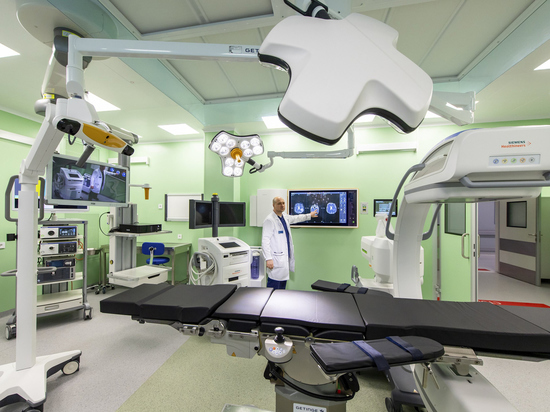Experts told how the healthcare system in Russia will change
[ad_1]

The priorities will be demographic development, increasing stress resistance and rehabilitation of those who returned after SVO
The COVID pandemic has made a lot of adjustments to the healthcare systems of most countries of the world. Russia also found itself in completely new, constantly changing conditions, and the speed of events today significantly exceeds the speed of influencing them and making decisions. Which way the health care should develop, the experts discussed during the conference “Pharma and health care: tasks of the new time”.
As Larisa Popovich, director of the Institute for Health Economics at the National Research University Higher School of Economics, notes, the pandemic has given impetus to an increase in healthcare funding in the country: “Our spending on it has reached 10-15% of the budget, and this is a good indicator. On average in the world it is 8-14%. But the problem is in the proper distribution of these funds – it is necessary to determine priority areas for financing, and after covid, the structure of diseases has changed a lot. Today, not only cardiovascular diseases and oncology are in the top, but also immunological problems, and disorders of the neuro-cognitive sphere.”
The expert believes that the main task for today is to form a “health picture” in the new geopolitical, economic and geographical conditions, with new priorities. “In April, we are waiting for a government report on a new model for the development of healthcare until 2040. But it is already clear today that its goal is demographic development, increasing the population’s resistance to stress, plus the rehabilitation of all those who return after SVO,” Popovich believes.
Prevention remains another direction in the development of “post-COVID healthcare” – during the pandemic, people have realized more than ever that it is beneficial from all points of view to stay healthy as long as possible and come into contact with the healthcare system as little as possible. Today, the lion’s share of medical expenses is spent on the treatment of chronic diseases (for example, in the US they “eat up” two-thirds of health care budgets). Therefore, a preventive approach that includes a healthy lifestyle and the elimination of so-called nutritional hunger (for example, regular intake of omega-3s has been proven to significantly reduce cardiovascular mortality) will continue to be a priority.
Orphan (rare) diseases, which are being detected more and more often, are also of particular importance today. And starting this year, when neonatal screening for orphan pathologies has been expanded from 5 to 36 positions, their number will increase significantly. And, therefore, the burden on the budget will grow enormously. And if the treatment of “rare” children today was gradually dumped on charitable foundations, then with adults the problem remains very significant. According to an expert in the field of orphan diseases, Yulia Grinberg, it is necessary to create a register of patients with analytics and statistics, including the effectiveness of therapy and drug costs, in order to plan treatment needs.
Until now, the problem of the “gray” market of medical services remains extremely relevant in Russia. Experts estimate the size of this shadow market at 7-13% of the main one. It includes private doctor’s appointments for a fee, drugs “under the counter”, and criminal artificial childbirth, and counterfeit products, and household medical business (without registration of employees, etc.) In monetary terms, the volume of the shadow market, which does not taken into account and not controlled, experts estimate at 215 billion rubles. According to the managing partner of the law firm Alexander Aronov, it is primarily patients who suffer from this: “Every year, more than six thousand materials on the consequences of medical manipulations are submitted to the Investigative Committee for consideration, but after verification of three thousand, any actions stop. Most often (90 percent) these appeals are initiated by patients. Why? They no longer have any other opportunity to compensate for the consequences of medical intervention in the legal legal field. If harm is caused to health, we actually have only one way – SC. And although most of the claims are not satisfied in the end, the reputation of doctors suffers, the law enforcement system is overloaded, patients are not happy. Everything is in the negative. This process needs to be regulated.
The expert believes that it is possible to make the shadow market of medical services legal, replenish the budget and ensure that doctors provide medical care within the legal framework, and patients receive compensation if the doctor is given the status of a subject of civil relations.
And, finally, the healthcare of the future is already unthinkable without artificial intelligence. According to the Acceleration Director, Head of Digital Healthcare Solutions Sergey Voinov, the remote health monitoring system has appeared since gadgets and mobile applications entered our lives. And today, all world health systems are moving towards creating integration schemes that allow for such interaction between a doctor and a patient. Therefore, one of the directions of development is the creation of a system of PHC (personal medical assistants). In Russia, such programs are already being developed at the state level to monitor health indicators in patients with cardiovascular diseases and diabetes mellitus.
[ad_2]
Source link








